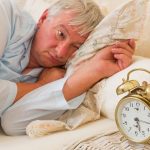
But when your sudden urge to sleep becomes overwhelming – meaning you can’t control it – it may be an indication of a more serious problem. What we’re referring to is a sleep disorder called narcolepsy, and no amount of sleep can prevent your tiredness during the day.
What is narcolepsy?

Narcolepsy is chronic and unfortunately there is no current cure for it. It can impede on one’s daily activities but treating the symptoms may help.
Currently about one in every 2,000 people have narcolepsy. Narcolepsy can start as early as teenage years and can affect both men and women. Although symptoms can be frightening, with proper management of the disorder living a normal life is possible.
Causes and symptoms of narcolepsy

Family history does not seem to play a role in the onset of narcolepsy. Sometimes a genetic defect has been seen in some cases of narcolepsy. The production of hypocretin becomes inhibited resulting in low levels.
In very rare cases a cause for narcolepsy has been through traumatic injuries involving a part of the brain which plays a role in rapid eye movement (REM) sleep.
Besides a sudden attack of sleep, narcolepsy does come with other symptoms as well which include:
- Daytime sleepiness: As the day progresses those with narcolepsy experience a growing tiredness. This can lead to suddenly falling asleep.
- Loss of muscle tone: This is referred to as narcolepsy with cataplexy. When a person with narcolepsy shows emotion, like laughing for example, the body will work in uncontrollable ways like the knees may buckle. Episodes of cataplexy can occur rarely – once or twice a year – or frequently.
- Sleep paralysis: While falling asleep or awakening, a person with narcolepsy may become temporarily paralyzed and be unable to speak. This type of sleep paralysis often occurs during the REM sleep, but as time the person is in a deep sleep he/she won’t recall it. With sleep paralysis in narcolepsy the individual can fully recall the situation yet have no control over it.
- Hallucinations: May occur when falling asleep or upon awakening. Dreams may appear as reality.
Coping with narcolepsy
Medication treatment should be paired with lifestyle changes as well for maximum benefits. For starters, those with narcolepsy should attempt to stick with a sleep schedule. Stimulants, like coffee, should also be avoided especially right before attempting to sleep. Likewise, large or heavy meals should not be consumed prior to sleep either and smoking should be avoided.
Creating a relaxing routine prior to sleep can help you get the best quality sleep as possible. This can either be done through meditation, creating a restful space by dimming the lights and shutting off technology, or enjoying a warm herbal tea.
Lastly, because symptoms of narcolepsy can be quite frightening it may be helpful to seek counseling or a support group as a means of adjusting to the symptoms.
Related Reading:
REM sleep behavior disorder: Facts and symptoms
Sleep is an integral part of our health. It’s that nightly spell where we recharge so we can take on the next day. Sleep is also important to give our bodies a restart. It helps store memories, events and even reduces stress. Clearly, sleep is important and we should all ensure we’re getting enough of good quality sleep. Continue reading…
Your lack of sleep can cause heart disease
There is a slew of health conditions which are plaguing Americans. From diabetes, to blood pressure these are just some health concerns wreaking havoc on the health of Americans. Some health concerns are related, so much so that if one area is unhealthy it can lead to additional health concerns. Continue reading…
Sources:
http://sleepfoundation.org/sleep-disorders-problems/narcolepsy-and-sleep
http://chealth.canoe.com/condition_info_details.asp?channel_id=0&relation_id=0&disease_id=185&page_no=1#Facts
http://www.ninds.nih.gov/disorders/narcolepsy/detail_narcolepsy.htm#272633201
http://www.mayoclinic.org/diseases-conditions/narcolepsy/basics/lifestyle-home-remedies/con-20027429